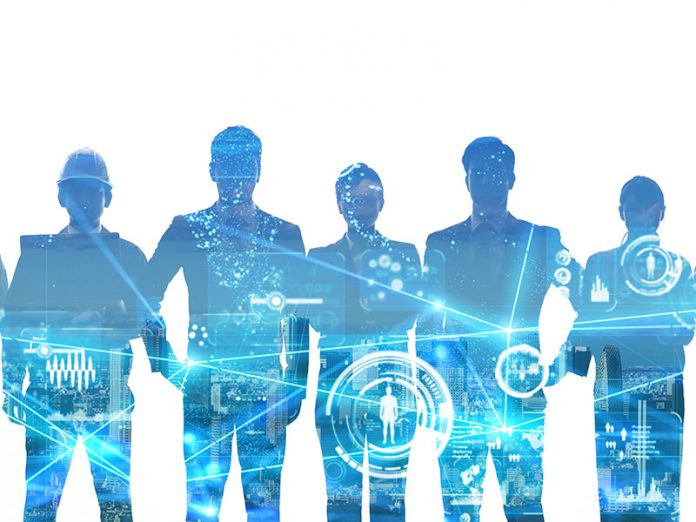The world of work continues to evolve, altering our assumptions about the jobs and tasks we do, the tools we use to perform them, and the ways in which we collaborate with our colleagues. The HR department also needs to evolve for the digital workplace.
Consider a few statistics that suggest how quickly technology is upending the job market and the workplace:
• 85% of jobs that will exist in 2030 don’t exist today;
• Currently available technologies could replace 45% of human work today; and
• Nearly half of decision-makers don’t know what their industries will look like in three years’ time.
This uncertain future is placing human resources (HR) departments under enormous strain, demanding that they become more agile at:
• Forecasting skills businesses will need;
• Sourcing the human resources needed to perform the work;
• Enhancing employee engagement to retain the best talent;
• Upskilling people to keep up with the rate of technology change; and
• Helping colleagues map out their careers in an unstable world.
This raises the question of how HR can partner with the IT team to help people make the most of technology resources, as well as how HR can make better use of technology to achieve its own goals.
Lifelong, bite-sized learners
We are already seeing major disruptions in how people learn, thanks to technology. For example, most large businesses are using online and mobile learning to complement classroom-based training. In addition to formal training programmes, we are seeing a growing emphasis on on-demand interventions that give employees access to training and information at the moment it is needed.
Deloitte predicts that the pace of change will be so rapid that people will learn ‘in the moment’ using tools like virtual and augmented reality. Deloitte also says the ability to gain new knowledge will be more valuable than the knowledge itself.
It is not only training that is changing as a result of technology, but also recruitment, hiring, employee engagement and career development practices.
Organisations are figuring out how to hire and develop the workforce of today, tomorrow and five years from now. Rather than hiring for specific skills, business need to look for well-rounded individuals with skills in several disciplines that bridge the gaps between departments and functions.
The very structure of the organisation is also changing as a result of digital disruption. Whereas organisations may have hired people to fill specific jobs with clear hierarchies and rigid job descriptions in the past, it is becoming increasingly common to structure the organisation around projects rather than departments.
The global talent pool
A team working on a project or programme could be comprised not just of internal employees, but also freelancers, contractors, and skills sourced from on-demand talent marketplaces like Upwork or Freelancer.com. Businesses can dip into globally diverse talent pools, hand-pick the skills they need from anywhere in the world, and gather a highly experienced, specialised team to work on specific projects.
This backdrop is challenging for HR departments, which realise they will need to automate processes and make better use of their data if they are to become world-class talent hubs within the business. One key step in the right direction is to modernise payroll and HR business systems to improve management of the employee lifecycle.
Automation, however, is just the departure point for creating a data-driven HR function ready for the challenges of the digital age. Once HR processes are digitised, the HR team will benefit from access to reams of information that it can use to make better decisions and serve the needs of job candidates, employees, managers and other stakeholders.
Data-driven HR
Access to data will empower HR to evolve into a data-driven function, in much the same way as marketing already has. For example, the HR team will be able to examine data for historical trends and predictive insights into the business and the workforce, including:
• Skills the business will need to support its future growth;
• Where its most successful hires come from;
• Why employees leave;
• Levers that are most successful in driving talent performance; and
• Employee satisfaction and engagement.
The disruption digital technology will bring to the workforce is just beginning. HR departments and the wider organisation are only starting to come to grips with the impact of social media, cloud computing, and collaborative tools like Slack, Skype for Business or Microsoft Teams.
Even so, a new wave of change is already on its way. Artificial intelligence (AI), advanced robotics, the Internet of Things, blockchain, quantum computing and many other emerging technologies are starting to work their way into the mainstream.
HR departments are going to be facing some interesting questions in the years to come:
• Just how much responsibility should they take for skilling up employees who may be displaced by automation?
• How will people and machines work together, possibly with AI ‘supervisors’ taking the lead?
• How do they strike a balance between privacy and control when they can monitor employees 24/7?
• How does the HR department use AI to offer better employee experiences and higher levels of efficiency?
Every HR department needs to seize the opportunities today’s digital technologies offer to better serve the workforce and the business. Those that put an efficient digital backbone in place in the form of a modern HR management system will be well positioned to succeed, whatever the future brings.






